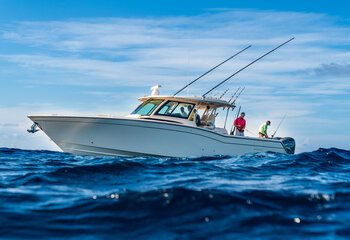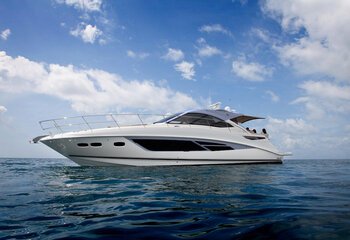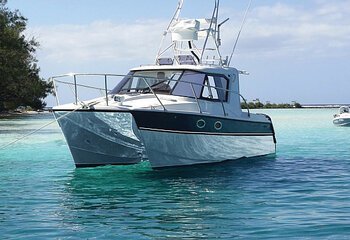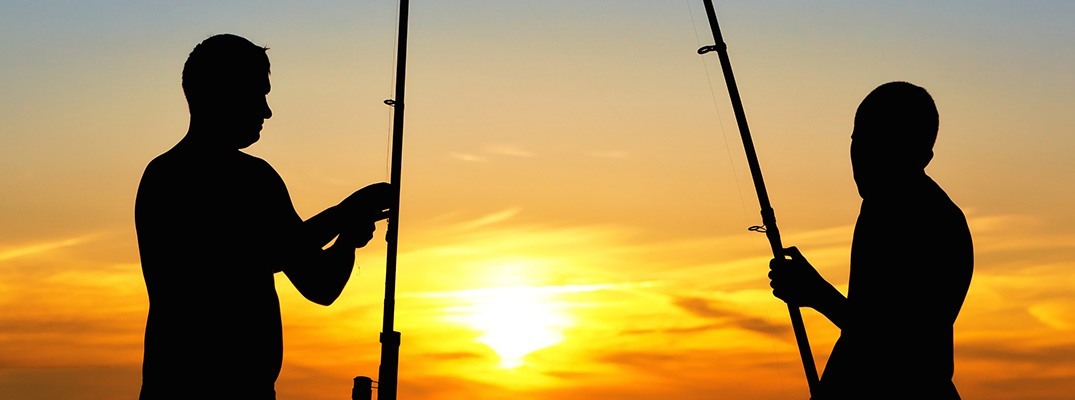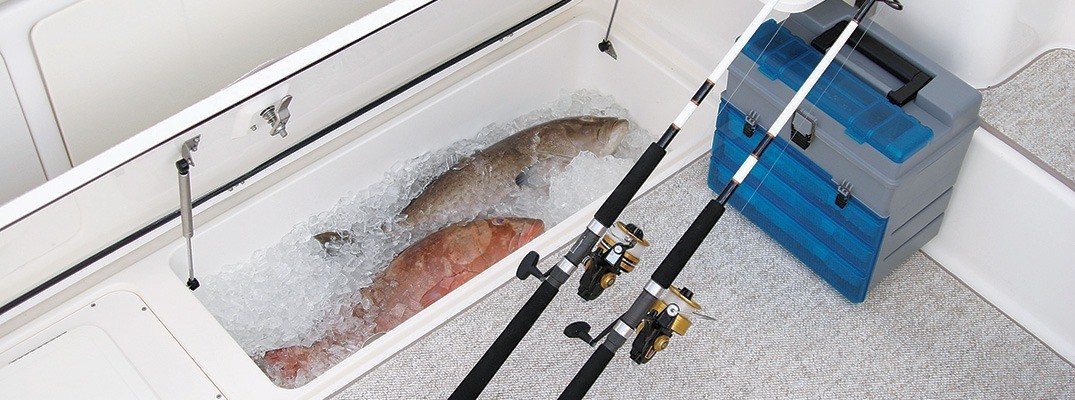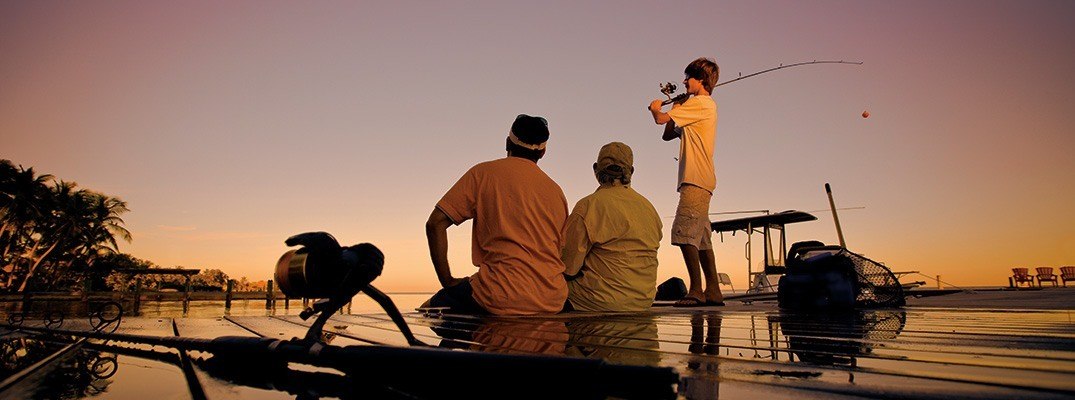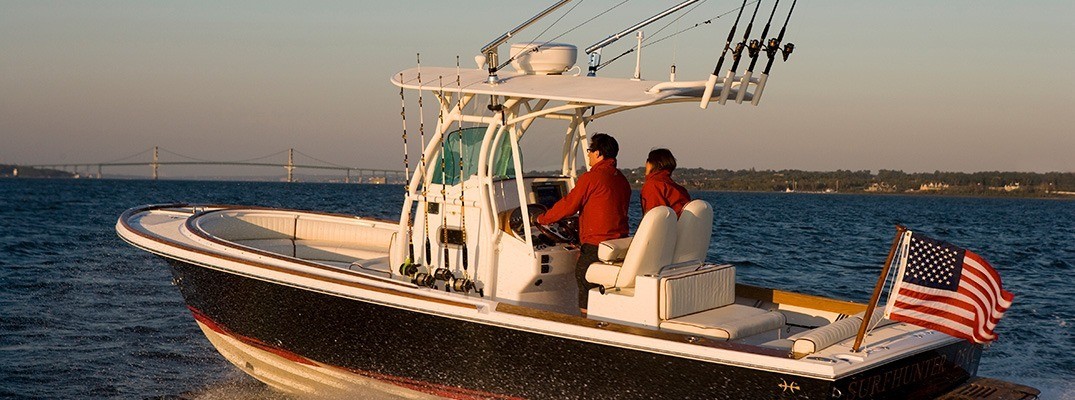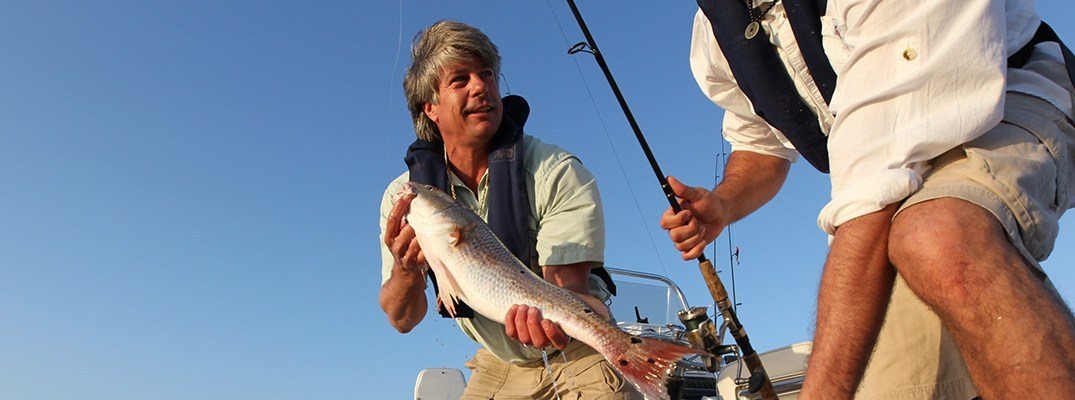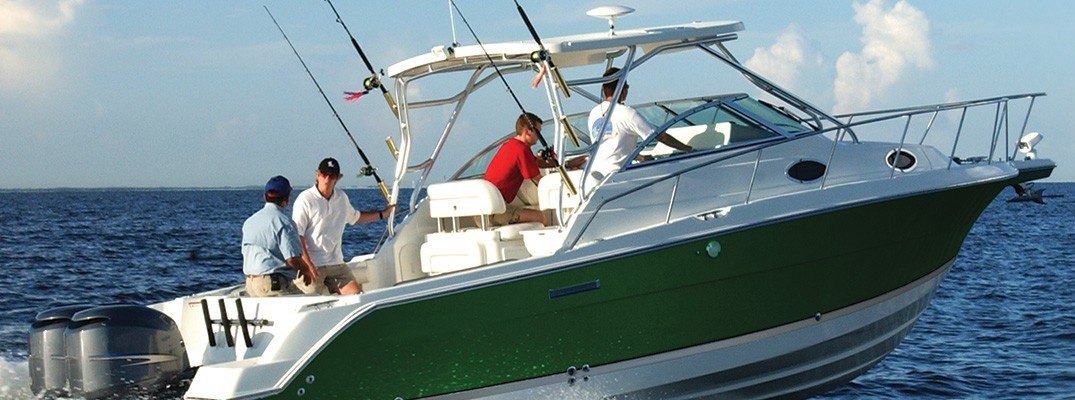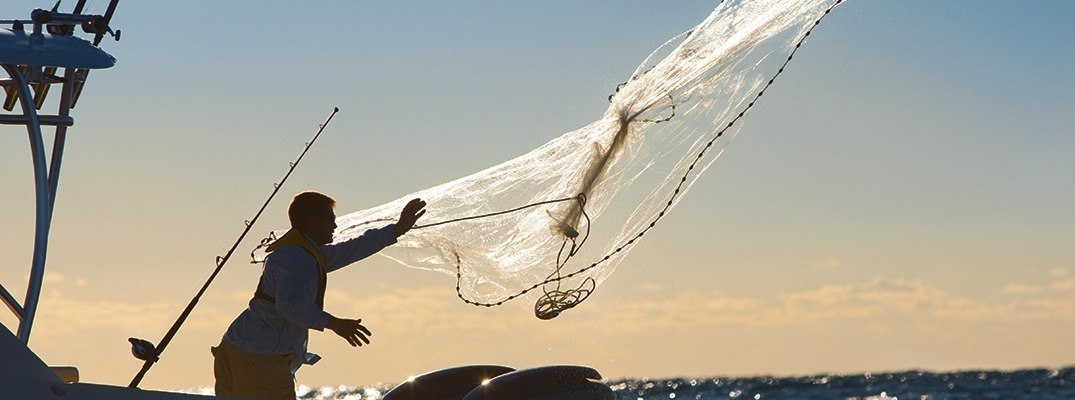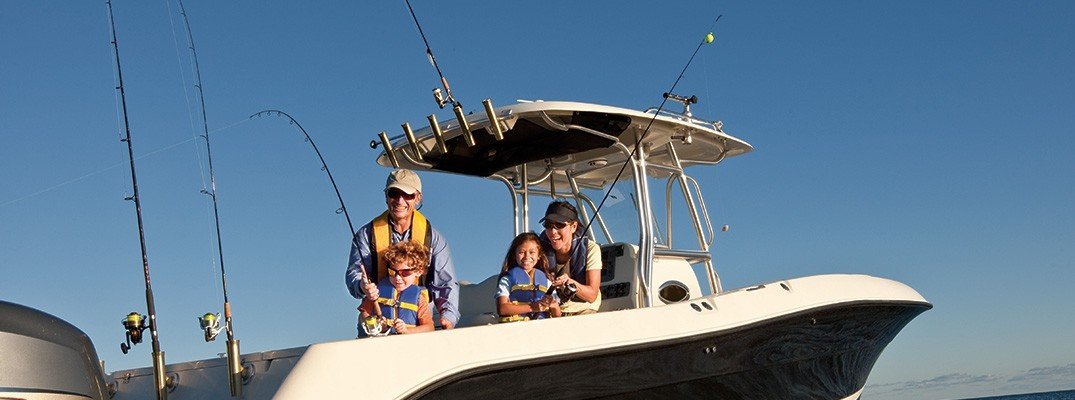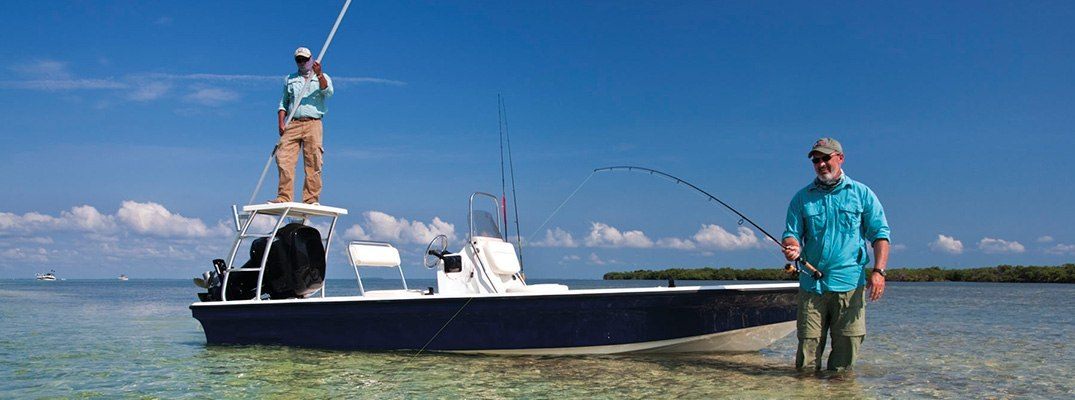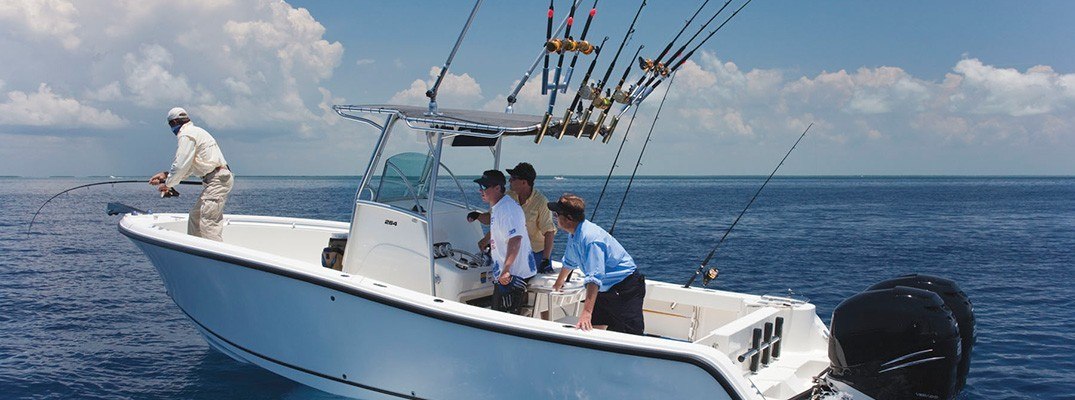Saltwater Fishing
While freshwater fishing is incredibly popular inland, up and down the coasts saltwater fishing draws the focus of countless anglers. It has all the same attractions as freshwater fishing with one major difference: when you go saltwater fishing, you never know just what you’ll catch or just how big the fish you reel up may be. That’s part of what makes saltwater fishing so fun—will a snapper grab the bait, or will a shark come swimming along? The mystery never ends.
Saltwater Fishing Necessities
In order to go saltwater fishing, of course there’s a list of special gear you’ll need:
- A fishing rod and reel
- An assortment of saltwater fishing tackle
- Bait
- A saltwater fishing license
The Benefits of Using a Boat to Saltwater Fish
Having a saltwater fishing boat opens up huge possibilities, as opposed to being stuck in one place with your feet planted on terra firma. If you don’t have a boat you can’t hope to explore more than a couple of spots in a day, but with a boat the places you can go are essentially endless. Plus, whatever type of fishing you like to do and whichever species of fish peaks your interest, a saltwater fishing boat gives you the ability to pursue it. Which are the best saltwater fishing boats for your needs? That depends on a number of variables, but checking out our different varieties of Saltwater Fishing Boats pages will help you make the best choice—and once that choice has been made, chances are you’ll be one very happy saltwater angler:
Selecting your saltwater
fishing gear
Seawater or saltwater is a general term for water that has a significant concentration of dissolved salts and solids, generally more than 30 parts per thousand (ppt). Saltiness varies widely from place to place and over time.
Pro Tip
Circling gulls and birds are an excellent indicator of where fish may be.
Saltwater Fishing Rods and Reels
Saltwater fishing rods and saltwater fishing reels are a bit different than those used for freshwater fishing, because saltwater fishing gear needs to be corrosion resistant. In many cases it also needs to be heavier and stronger to stand up to the pull of larger saltwater gamefish.
The best saltwater fishing rods are specialized for different styles of fishing or species of fish, and are rated by “action” and “power.” Action describes how the rod bends. A very fast action rod bends mostly near the tip, while a very slow action rod is nearly parabolic in nature and bends evenly all the way back to the butt. Power, or the other hand, describes the lifting power of the rod and is usually ranked in terms of ultra-light to very heavy. Read Saltwater Fishing Gear: Rods, Reels & Bait, to gain more insight into your options. And remember that if you want to try a specialized form of fishing, like saltwater fly fishing, you’ll need gear specifically designed for the task.
Saltwater Fishing Tackle
Again, saltwater fishing tackle, including things like saltwater fishing lures, pliers, landing nets, and all types of big-game fishing equipment, needs to be corrosion-resistant. Different species and different fisheries have different tackle requirements so it’s difficult to make blanket statements about what you’ll need, but as a general rule of thumb use gear that’s capable of handling the biggest fish you’re likely to encounter. Remember, when you go saltwater fishing you never know what might bite.
Saltwater Fishing Bait
There’s a long list of what sorts of baits you may want to us, depending on where and when you’re fishing. It will take time, experience, and checking out lots of fishing reports or talking at the local tackle shop to decide which will be best in any given place on any given day. Reading What is the Best Fishing Bait will get the ball rolling.
Saltwater Fishing Spots
There are countless saltwater fishing spots just about everywhere there’s saltwater. So, you’re probably wondering: where’s good saltwater fishing near me? The answer to this question will constantly change with weather, seasonality, and the unpredictability of those fish.
- Ocean (From a Boat, Pier, Shore): While fishing in bays, tributary rivers, and other bodies of saltwater is thoroughly exciting, many people consider fishing in the ocean to be the ultimate challenge. If you own a saltwater fishing boat your options are more or less endless. But if you don’t you can still fish in the ocean from a pier, shore, or the surf. While most anglers would agree that having a boat is the best option, landlocked anglers can still catch plenty of fish.
- High Tide Versus Low Tide: Tide plays a huge roll in saltwater fisheries. Tides cause currents, and currents can help fish feed. But there’s no hard and fast rule as to which tide is best. In some places at some times a high tide is great and in others, a low tide jolts the fish into action. Sometimes an incoming is good but a full high tide is not, and the same could be true of an outgoing tide versus a low tide. The bottom line? This is another variable that constantly changes and only time and experience (or lots of research) can help you judge when and where which will be best.
- Brackish Water Tides: Tidal cycles can be even more important in brackish water systems. Not only do they cause currents, but tides can also allow fish access to certain areas and eliminate it at others. This becomes particularly important in the shallows or on tidal flats, for example. Some fish will feed in spots covered by a foot or two of water during a high tide, which are only inches deep or may even be completely exposed during a low tide.
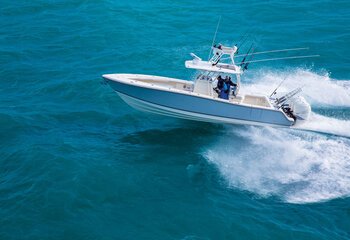
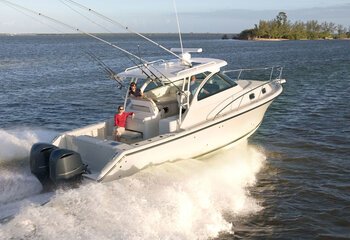
_weba6b1.jpg)
